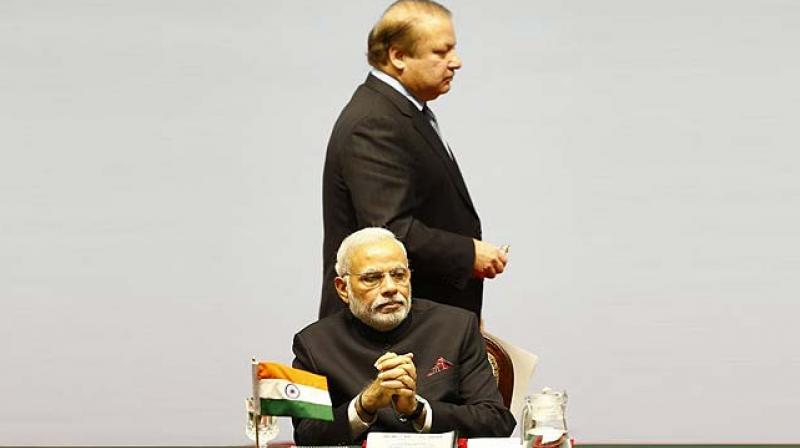Tell US firmly: Keep off India-Pak issues
The Modi government may have given the impression of being too solicitous of the US.

On assuming the UN Security Council chair for two months on Tuesday, US ambassador to the UN Nikki Haley said in response to media questions: “We don’t think we should wait till something happens. It’s absolutely right that this (Trump) administration is concerned about the relationship between India and Pakistan and very much wants to see how we de-escalate any sort of conflict going forward... So I think that will be something that you will see members of the Security Council participate in, but also wouldn’t be surprised if the President participates in that as well.”
Not since the presidency of Bill Clinton nearly two decades ago has an American Cabinet member thrown such hints of the US urge to intervene in the matrix of India-Pakistan bilateral relations.
After the 1972 Shimla Agreement, India has steadfastly guarded the core premise of that agreement with Pakistan — that all and any issues between the two countries, including Kashmir, would have to be resolved bilaterally, without third-party (UN or another country) involvement. The role of bilateralism was also the essence of the 1999 Lahore Declaration. Pakistan has signed both documents but has reiterated — from every forum it can — its call for the world, specially the US, to get involved in the Kashmir dispute. The Trump administration has just given evidence of taking the bait.
In India’s response to Ms Haley’s observations, the official spokesman not only referred to the bilateralism principle, but also made it plain that the “bilateral redressal (sic) of all India-Pakistan issues” could only take place “in an environment free of terror and violence”. The spokesman did well to remind everyone that India expects “the international community and organisations to enforce international mechanisms and mandates concerning terrorism emanating from Pakistan, which continues to be the single biggest threat to peace and stability in the region and beyond”. Ms Haley, a member of the Trump Cabinet, has said the US President was likely to “participate” in the process of being “proactive” in the context of “seeing tensions rise and conflicts start to bubble up”. It is not clear if this is a general proposition or specific to the India-Pakistan equation. We need to face up to what may be coming. The Modi government may have given the impression of being too solicitous of the US. This regretfully incorporates the sense of doing America’s bidding. This needs to change.

